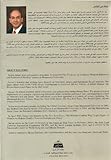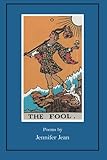Editor's Introduction
Marcel Proust writes of being in his bedroom and hearing what seems to be a riot in the street outside. Then, his conception of the familiar takes over and the disturbance settles into the regular sound of a carriage passing by: gone are, he writes, “the shrill and discordant vociferations which my ear had really heard but which my reason knew that the wheels did not produce.”
The opposite seems to happen in Saliba Sarsar’s poem, “Awaiting the Return.” Here, the reader is offered a still life composed of the utterly familiar. It is a scene that might go unnoticed if there were not something there to undo the work of the habitual. In Sarsar’s poem, all the normal things that populate the kitchen seem to evoke Proust’s “shrill and discordant vociferations” that have no reference. The poem brings them out from the fold of the known and accepted.
Everything in the poem suggests a world comfortably at work: the bread already sliced, the aluminum there to catch the already-burnt incense. It is only in the title and in the poem’s last line that a conceptual mechanism is at work that turns everything familiar in the poem into its opposite. Once we assimilate the poem to its frame, we realize, with horror, that there is nothing that we can read that is what it is, that all the things in the poem have become symbol, have taken on absence. The terrible question that the poem asks, then, standing at the very birth of the symbol, is perhaps that of why things cannot be as we perceive them?
With incredible precision, Jennifer Jean’s “Sound” addresses a similar fallacy of perception: that of time as a linear thrust forward. The poem struggles to portray the relation of two consciousnesses, of father and daughter. At the end of the poem, the “soft bed” of the father, and the “open dresser drawer” bed of the baby/writer, seem to coincide, and to give the lie to the notion that their lives are lived parallel to each other, and thus could be portrayed as separate. The flow of time gets reversed here, as his sigh in bed seems to emanate from out of her sleep. Time seems to give up its linearity here, circling absence, rather than being pushed forward to escape from it, as father and daughter are held in “an ancient whole night/ or moment” in the body of the mother. “Mother mother—“the poet writes in distancing italics, leaving room for the father to take his place alongside her.
To perceive, to speak, implies distance, requires a disrupting of our absorption in the world enough to hear it, to see it, and to say it. If the rhetoric of war is enmeshed in the rhetoric of silence and the unspeakable, it is perhaps because there is no time to perceive, no time to speak to oneself. In Jean’s poem, the daughter seems to offer this distance, to make perception possible. She becomes the observer lacking in her father’s absorption, and in doing so, she binds time.
If, in Jean’s poem, the sphere of the father and the sphere of the daughter coincide, in Aaron Brown’s “Memory Across Ocean,” the poet and his subjects seem to occupy two different spheres, with two different centers of gravity. The attempt to join them brings only paralysis, or, as the poet calls it, “contemplation.” Poetry, here, seems futile; it can only expose distance, but it cannot bridge it.
Even the poem’s recourse to figurative language, to what we call the “poetic,” seems calculated only to perpetuate inability, something the strange grammatical structure of the last stanza emphasizes: as the country “rises up in smoke, / in flames that I could board /a plane to escape,” for just the split second before the line break, the poet boards the flames before he boards the plane; and when we jump to the next line, and the poet, back in his body, boards the plane, this poetic heroism is lost (and the poet, remember, is careful to qualify his subjects as the heroes).
“…listen to the engine/ hum my soul away to where / contemplation is the only means / of return.” The poetic reasserts itself as the poet now attempts to make the real plane into a transporter of souls, not bodies. Contemplation, then, becomes an activity of the soul, not the body, and so, where one returns to, in contemplation, is not the place where the bodies are. We hear often of souls trapped in bodies: but, perhaps, this poem makes us think that a body can be trapped in a soul, and that “soul” is just another word for unbridgeable distance.
- by Noam Scheindlin
Saliba Sarsar
AWAITING THE RETURN
(June 1967 War)
bread, three loaves: one sliced, the other two whole
chairs and a wooden bench, with five rosy cushions; enough seating for ten
dates and raisins in a plastic bag
English breakfast tea in tin, loose leaf
four photos of grown-ups and children posing on the refrigerator door
gecko, whitish, crossing the window screen on the outside, oblivious to those waging war
hydrangea blossoms, pinkish bluish, on the windowsill
incense burnt on charcoal in the middle of an aluminum sheet on the countertop
jasmine floating in a clear deep dish
kettle full of water on the stove
Last Supper, with a deformed Judas, hanging on the wall
marmalade in a jar, with a silver spoon on the lid
notepad, empty, attached by a string tied to a nail next to a peel-off Arabic calendar
olives, black intermingled with green
petit beurre biscuits on a flat plate with red flowers
quilt, with embroidered crosses, on the sofa arm to the left of the dining table
radio-cassette player, with the cassette door open
squares of white goat cheese
tea cups, one per seating, made of fine china
utensils dangling from an accessory rack
vase and glasses, ornate, on exhibit in a Curio cabinet
windows, all glass with colorful curtains pulled half way
Xerox copies of the Lord’s Prayer in English and French on a chair
yellow candle, unlit in front of a half-burnt icon
zeit u za‘tar (olive oil and thyme) in separate small white plates
a dining room awaiting a family’s return
a house looking forward to becoming a home again
Dr. Saliba Sarsar, born and raised in Jerusalem, is Professor of Political Science and Associate Vice President for Global Initiatives at Monmouth University. He is the author and editor of several works on the Middle East, as well as two books of poetry. The first, titled Crosswinds, includes impressions of a teenager experiencing Jerusalem under Jordanian and Israeli rule, and maturing in a land of “between war and peace.” The second, Seven Gates of Jerusalem, is a bilingual (English/Arabic) edition that weaves individual lives with the historical, the tangible with the unseen. The poems address overcoming adversity, the need for deliverance. Dr. Sarsar’s individual poems have appeared in a variety of venues, including Monmouth Review, Upstate Magazine, Voice of the Shore, The New York Times, This Broken Shore, Asbury Park Press, Tiferet: A Journal of Spiritual Literature, and Mediterranean Poetry at odyssey.pm.
Jennifer Jean
SOUND
In those years I did not sleep.
If I slept I missed him more—missed the night
copters whirring near city ground, near
our terrible home, my fatherless home.
Missed those hopped up news-copters,
those quick cop-copters mega-phoning
and floodlighting our lots and potholed pathways,
the bedroom windows and eyes
of capped rough boys running. I know enough
to know my soldier father
lay under this same fast hack at air—years before
I was born—under a whickachop whickachop whickachop.
He lay lucid in those humid ‘Nam
war nights—swallowing
hard against acid,
sweat pooling in the pits,
sliding down the slight spine. My long lost father
with this same upchucked gut.
And stuck—apart, in our own time—we’d wonder,
Who, by morning, would be left?
And what does it matter? We’d both rise—deadish—
and he’d wander away the rest of his days
like Cain—in and out of Veteran’s hospitals.
I’d spend my days waking waking shaking
off his old sound waves, mine. We were one
on a single frontline—all the people
along that front, at war
across time. I am more
awake now, living
with my children, my husband—moved
away from a constant copter chop. Now, ocean sounds—
fake ones at least—ease me into sound sleep.
They wash me
into an ancient whole night
or moment–when, as a baby, I lay in an open dresser drawer
in a flat half-a-block from Venice Beach. Where—
after warring, after sun
tacos beer mother
mother mother—
he sighed in a soft bed.
Jennifer Jean's most recent poetry collection is The Fool (Big Table Publishing, 2013); other collections include: The Archivist, Fishwife, and In the War. Her poems, book reviews, and essays have appeared in: Drunken Boat, Denver Quarterly, Tidal Basin Review, Caketrain, Poets/Artists, Poetica, Talking/Writing, The Mom Egg Review, and more. She is Co-director of the Morning Garden Writers Retreat, and Poetry Editor for The Compassion Project; as well, she teaches Free2Write poetry workshops and writes blog-essays for Amirah, a non-profit advocacy group for sex-trafficking survivors. Jennifer teaches writing and literature at Salem State University.
Aaron Brown
MEMORY ACROSS OCEAN
I have been shielded from the suffering
of earth’s most silent heroes:
the aged woman
stooping low to boil her tea,
on a crude black grill underneath a tree;
a man pushing himself through sand
with his gnarled hands,
crippled legs folded in between—
his trail stretches for miles behind;
or the smoldering homes
of lives scattered like some shrapnel,
once released there is no returning.
The smoke rises from the capital
and its citizens mill about with whatever
memories of the old life in hand;
taking their chances past the police checkpoints,
braving the overflowing bridge to another country.
In another country, I sit with a pen.
Somewhere across oceans of water,
oceans of sand where my life began
I had everything to dispose of,
though my people had nothing.
They watched their country
in one day rise up in smoke,
in flames that I could board
a plane to escape, listen to the engine
hum my soul away to where
contemplation is the only means
of return.
Aaron Brown is a novelist and poet who lived for ten years in Chad, Africa. An MFA candidate at the University of Maryland, he is the author of the novella Bound (2012) and the poetry chapbook Winnower (2013), both published by Wipf & Stock. His work has appeared or is forthcoming in Burningword, The Portland Review, Polaris, North Central Review, Windhover, Saint Katherine Review, and The Prairie Light Review, among others. You can read more about his work at www.writingtheinbetween.com. He lives with his wife in Lanham, Maryland.



